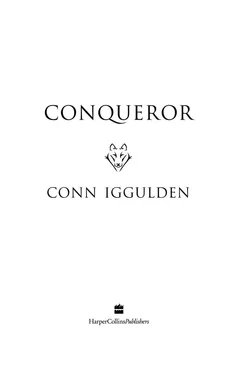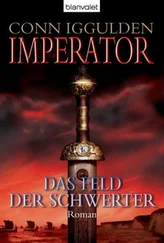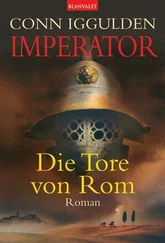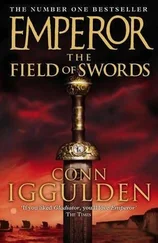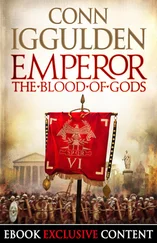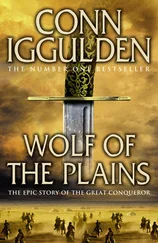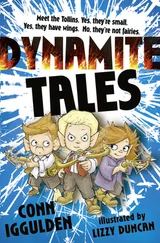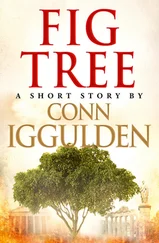It had fallen in just a day. Though he did not have the numbers of cannon that Mongke had given Kublai, there were still enough. In a line of eighty, the polished rock balls smashed open the gates with two blows, but he had not paused to assault the town. Instead, he had ordered the guns to keep firing, cracking the stones to rubble and sending defenders flying in sprays of blood. The tumans had watched indifferently, waiting for his orders.
Only the thought that he should not waste his dwindling store of black powder made Hulegu call the halt. He enjoyed the thunder he could bring with just a wave of his hand. It was intoxicating to say ‘Fall’ and have a city wall hammered to pieces before his eyes. He sent his men in that evening, loping on foot as they rushed to be first to loot the town.
Young women were raped, then tied together in weeping groups, ready for the gambling and bargains that would follow. Children and the elderly were killed as they were found. As with the battered men of the town, they were of no value. Gold and silver items were stripped from each house and piled in the central square to be weighed and assessed. Hulegu had his own forges with him. His habit was to melt the precious metals, skimming off the impurities and alloys as they rose out of the denser gold. Persian chemists directed the work, sending ancient items to feed the flames. They were allowed to keep a tithe of all they collected, one part in a thousand to split between them. Already they were wealthy men and Hulegu had been forced to cut hundreds of trees and wait as the new timber was made into carts to carry the wealth.
Many of the defenders had fallen as the walls collapsed, coughing and choking on dust. Some tried to surrender, and for those Hulegu had only contempt. He stared with pleasure at the swinging bodies. He did not hang them by the neck, to die quickly. A few were hung by the feet, but most were held by ropes under their armpits and gashed across their stomachs to bleed to death. They lasted a long time and their cries could be heard across the hills.
When the town was burning, Hulegu signalled to General Ilugei to cut the bonds holding his prisoners. They were all men who had fought with courage and been battered to the ground. From a town of ten thousand, it was a pitifully small number, but he could at least have the glimmerings of respect for those few. He watched in stern silence as they stood and rubbed their wrists. Two of the nine were sobbing, while the rest stared at him in mute horror and impotent rage. He felt it like good wine in his mouth, making him strong.
He did not speak the local tongue, so he had his words repeated by one of the chemists, a turban-wearing Moslem named Abu-Karim.
‘I will give you horses,’ Hulegu said. ‘You will go ahead of my warriors, my carts and guns. Ride west and south and tell them I am coming. Tell each man you meet that he must open his doors to me, that he must give me his wives and daughters to be mine and his wealth, which will also be mine. He may keep his life. Tell them that if a city, or a town, or a single home bars its doors to me, I will visit destruction on them all, until the earth itself cries out in pain.’
He turned away then, not bothering to wait until the translator was finished. Baghdad was to the south-west and the caliph there had sent more blustering threats and lies. To the north, Hulegu felt the pull of the Assassin strongholds. He grunted in irritation at being caught between the two desires.
CHAPTER FOURTEEN

Kublai could see a multitude around him, from those digging toilet pits, to warriors leading horses and women tending cooking fires for their husbands and sons. He had never known the life of a moving tribe, but something in him found peace in it. Looking into the distance, he wondered again at the veritable nation he had brought south. There must have been half a million souls in the column that rode down the border of Sung lands. He was not even sure of the true number.
He stretched his back with a soft groan as his wife and son prepared his ger for him. Not that little Zhenjin was much use, he noticed. Mongke’s orders had not extended to his family and the ten-year-old still wore a Chin silk tunic and leggings, down to a pair of soft sheepskin boots. His topknot of black hair flicked back and forth with every movement. Kublai tried not to laugh as he saw the boy sneak a handful of steaming meat scraps from the pile that Chabi was working into pouches. She had only looked away for a moment, but the boy had quick hands. Zhenjin had stuffed his cheeks before she turned back. It was bad luck that his mother chose that moment to ask a question, or perhaps not. Chabi adored and spoiled her first-born, but that did not mean her instincts were blunt. As Zhenjin struggled to reply around a mouthful of hot meat, she poked him in the stomach and he sprayed bits of food, giggling.
Kublai smiled. He could still be surprised at the strength of his emotions when he looked over his family. It wasn’t just that the boy delighted him, but a moment with his family could bring sudden understanding of his own parents. His father had given his life to save a khan, and Kublai finally appreciated the scale of that sacrifice. The man had acted for the nation, knowing he would never see his sons or his wife again. In a strange way, it left a debt to be paid by all of them, as well as a sense that however they lived their lives, they could not equal their father’s final act. Kublai sensed Mongke struggled with the same burden. His older brother was trying to fit an ideal, but he would never know peace looking for the approval of the dead.
At least Mongke had not stinted in men or supplies. With Uriang-Khadai as orlok and Bayar as his senior general, Kublai travelled with two hundred iron cannon and thousands more carts filled with gunpowder and equipment under heavy tarpaulins. He had a staff of ninety-four men and women to handle the moving nation. As he stood there in his reverie, he could see some of them close by. When he had eaten, they would come to him with the details, plaints and problems of so many. He sighed at the thought, but the tasks were not beyond him, not yet. He crashed into slumber each night, yet still rose before dawn and practised with the sword and bow. When the armour had begun to feel light on him, Kublai could even imagine thanking Mongke for the changes he had wrought. The khan knew more about being a warrior than his brother. Unfortunately, it was all he knew.
Kublai felt an itch in his armpit and worked his thumb under the iron scales to scratch the sores there, grunting at the small pleasure. Life was good. He had seen his Chin estates, and in his mind’s eye, green shoots were rising quickly from the black earth. Just sinking a few painted poles into the soft ground had marked a grand new venture in his life. Yao Shu had arranged the lease of thousands of plots, with the rent to be paid from the first crops. If the Chin farmers prospered, two-fifths would be Kublai’s and the money would go to making a city in the north.
It was a dream worth having, something beyond the mass of warriors and horses that filled his sight to the horizons. Though it was little more than a vast square marked out on grassland, his men had already begun calling it Shang-du, the ‘Upper Capital’. Those who did not speak the Chin languages called it Xanadu. He whispered the word aloud.
With a sigh, Chabi wiped a hand across her brow and told Zhenjin to carry the platter inside for the stove. Kublai’s mouth filled with saliva. He was always hungry these days. His wife stood and stretched her own back. He looked over at her and their eyes met, united in their weariness. His mind lost the visions of palaces as his stomach rumbled.
Читать дальше
Конец ознакомительного отрывка
Купить книгу
